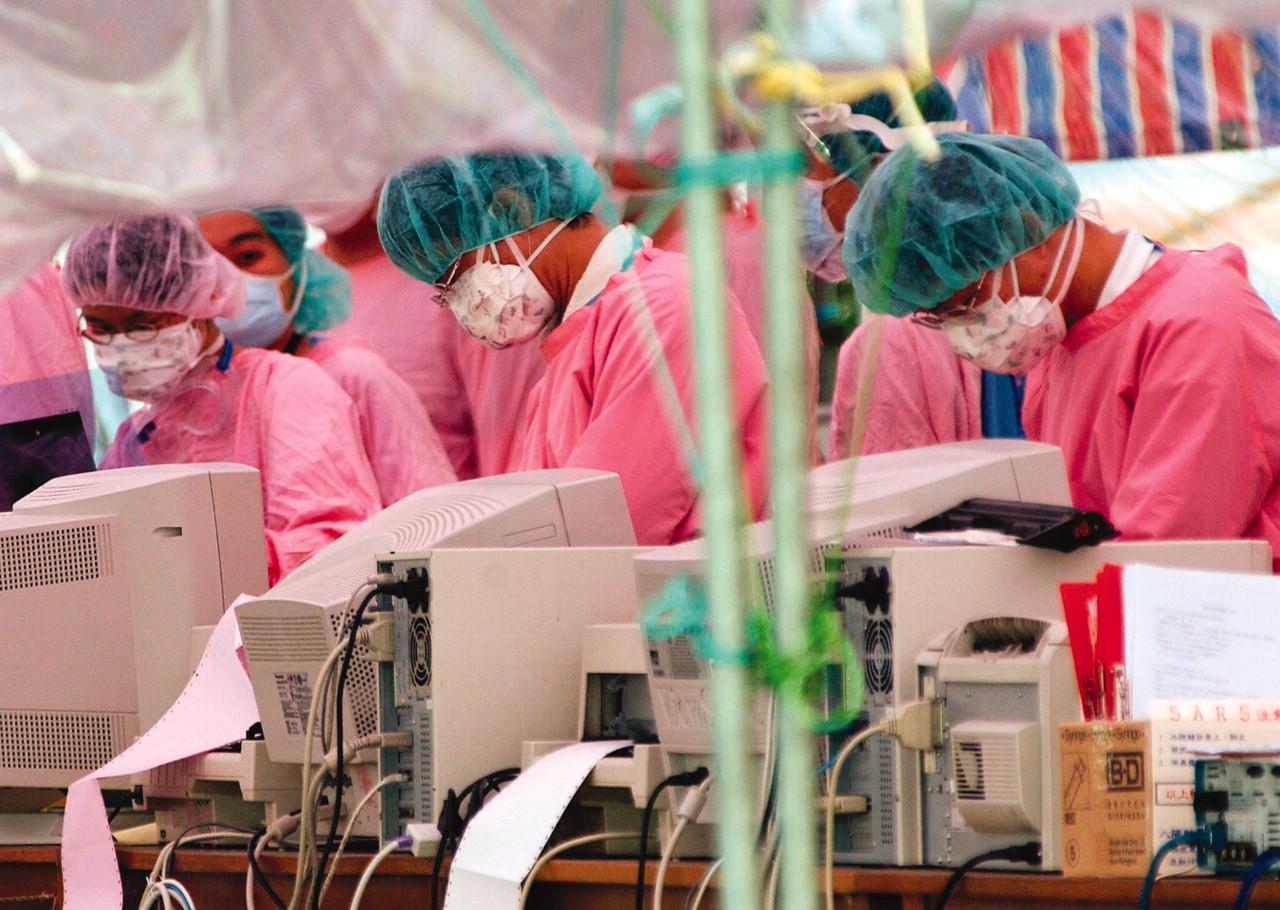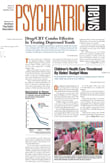Spring 2003 was not a good time for the Chang Gung Memorial Hospital in southern Taiwan. It admitted its first patient with severe acute respiratory syndrome (SARS) in late April. After that, 79 patients and hospital workers became infected, including five physicians. One of the physicians died on May 16.
However, Mian-Yoon Chong, M.D., Ph.D., chair of psychiatry at the hospital,“ was ready for the challenge of the SARS epidemic,” he told Psychiatric News. “It was because I had been involved in trauma and disaster work and research before. [For instance] in the devastating earthquake of September 21, 1999 in Taiwan.... I was one of the first psychiatrists involved in the rescue work.”
So, in addition to organizing his hospital staff into teams to help hospital workers deal with the SARS epidemic, Chong realized that the situation was an excellent one to learn how SARS affects health care workers. At his own expense, he and some of his colleagues decided to study as many health care workers in the hospital as possible to find out how they were reacting.
Their study took place from May 12, 2003 to June 27, 2000—the period when the hospital was officially declared as having a serious SARS infection. All staff working at the hospital at this time were invited to participate. A questionnaire was distributed at all work stations in the hospital and also over the Internet, to which all hospital workers had free access.
The questionnaire was composed of three parts—basic demographic questions and questions about SARS exposure; the Impact of Event Scale; and the Chinese Health Questionnaire.
The Impact of Event Scale is used to assess the frequency of intrusive and avoidance phenomena in response to a specific stressful life event. The scale has demonstrated extensive reliability and validity and is often used in trauma research. The Chinese Health Questionnaire is a screening instrument used to assess psychiatric morbidity in the Chinese community. It inquires about anxiety, depression, poor family relationships, somatic symptoms, and sleep problems.
Of the approximately 2,500 workers eligible for the study, 1,257 completed the questionnaires. The respondents included physicians, nurses, health administrative workers, pharmacists, technicians, respiratory therapists, and some other professionals. The researchers then separated respondents' reactions into those that occurred during the first half of the study, when the situation was chaotic and the SARS infection was escalating, and during the second half of the study, when the SARS infection was gradually brought under control.
Shock Gave Way to Helplessness
There were marked differences in respondents' reactions during the first half of the study and the second half, the researchers found.
During the first half, respondents were shocked by the sudden disruption of normal work and life. They felt extremely vulnerable, out of control, helpless. They were terrified that they would fall ill or that they would pass SARS to their family and friends. They were also feared by people in the community, and their children were shunned during school and social activities.
During the second half of the study, respondents tended to experience depression rather than anxiety, as well as somatic symptoms, intrusion, avoidance, and poor family relationships. Moreover, psychiatric morbidity was greater during the second phase of the study and appeared to affect respondents considerably regardless of their position in the hospital and how much work experience they had had.
All in all, 75 percent of respondents experienced psychological difficulties—a rate of psychiatric morbidity three times higher than that of the general Taiwanese population.
Institution Brought to Standstill
“It is sobering that a newly emergent infectious disease was capable of bringing a health care institution to a standstill, striking down nurses, doctors, and other medical personnel,” Chong and his team pointed out. Their report is in the August British Journal of Psychiatry. The outbreak, they add, “could be regarded as an acute episode of bio-disaster....”
These findings have implications for American psychiatrists, Chong believes. “The traumatic effects of the bio-disaster of SARS, like terrorism, are not limited to the direct victims alone and could extend to the regional as well as global communities,” he told Psychiatric News. “In the future training of psychiatrists, trauma and disaster should be emphasized.”
“I was very impressed by both the quality and the findings of this study,” Julia Frank, M.D., an associate professor of psychiatry at George Washington University who has a special interest in terrorism and disasters, said in an interview. “The authors managed to conduct methodologically rigorous research under near-combat conditions.... The high levels of symptoms endorsed by the respondents to this questionnaire sound a warning to all people responsible for crafting the medical response to new epidemics, of which SARS may be a bellwether.
“In this study, more highly trained professionals and people of lesser training showed equal vulnerability to overestimation of threat, psychological distress, and erosion in their commitment to care for patients. Exposure to trauma, like love in Gilbert and Sullivan, levels all ranks.”
Br J Psychiatry 2004 185 127

